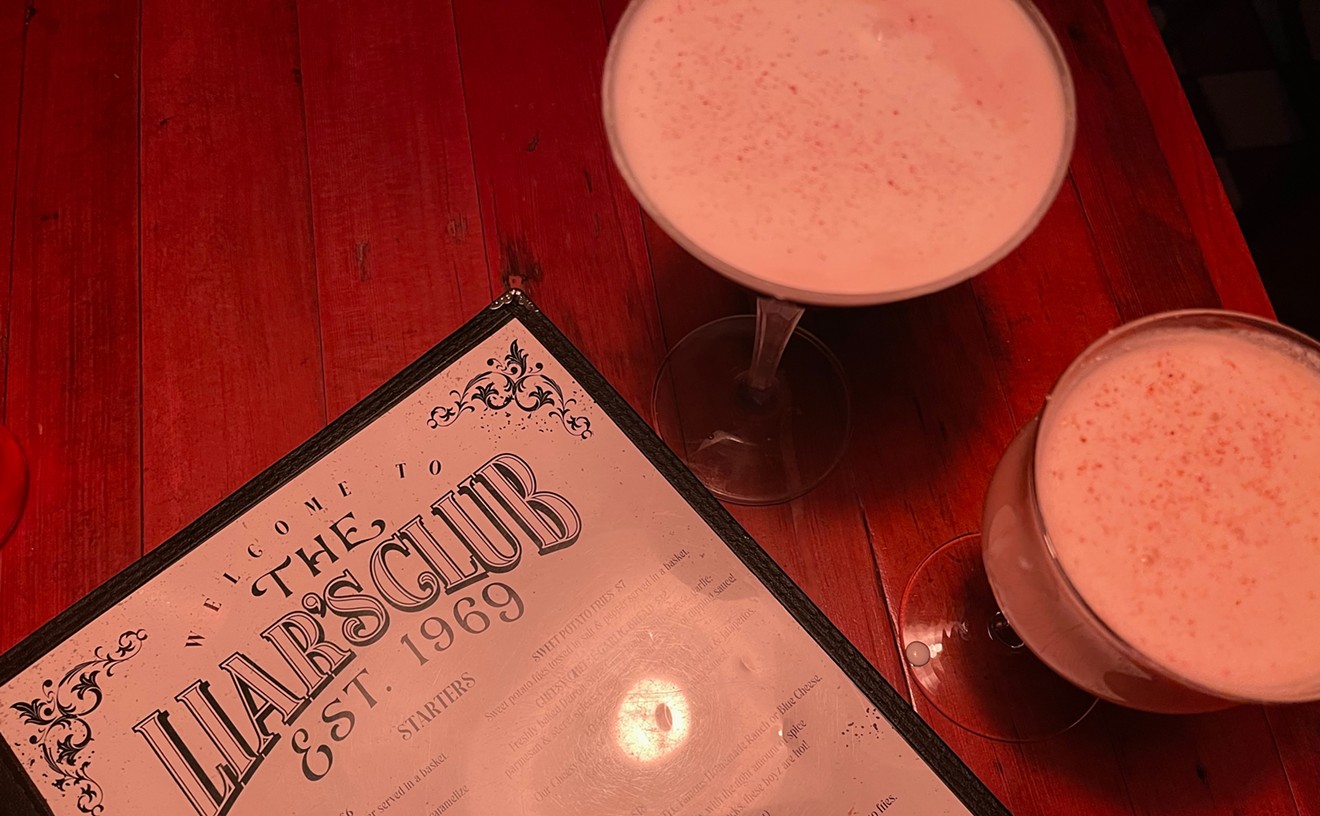In this case, the movie is Imagine Me & You, an English romantic comedy whose premise should doom it from the start: Woman falls in love on her wedding day. With the florist. Whom she saw for an instant. While walking down the aisle. Despite the fact that she's in a loving, multi-year relationship with an adorable man. The twist -- though the movie makes it incidental -- is that the florist is also a woman.
What's interesting is that the movie actually isn't doomed from the start. Early on, and periodically throughout, it's intelligent and funny. At their relatively understated wedding, Rachel (American Piper Perabo) and Hector (Matthew Goode) appear to be tying the knot on a stable, loving relationship. They do not seem bored, distracted, or sorry. With a Doberman of a mother and an English sheepdog of a father, Rachel has a family worth chuckling at; her precocious younger sister H. (for "Jesus H. Christ," which is what her aging mother said when she found out she was pregnant) asks endearing, if contrived, questions.
The problems arise with the appearance of Luce (Lena Headey), the sexy florist whose relative inattention to her appearance codes her as a butch lesbian. (In reality, she is a stylish, urban-chic femme.) Luce is a charming woman -- sharp and just the right amount of jaded -- but Rachel has no way of knowing that when she first sees her, in a furtive glance as the bride makes her way down the aisle. Once the women lock eyes, the jig is up, for the movie and the marriage. Rachel has encountered something new, and she wants it.
Oh, the issues. Whatever options there were for rescuing this plot, Imagine doesn't recognize them. Instead, in an apparent lunge at sophistication, it steps on its own foot. The way adultery movies usually work, for instance, is to render the existing relationship untenable: The husband is an asshole, or a bore, or oblivious; the marriage is obviously in trouble, so a sooner end is better than a later one. In this case, Heck (as he is known) is utterly charming -- hilarious, handsome, principled, and very much in love with his wife. In fact, the movie succeeds in making him so attractive that we can't wish him even a moment of pain.
Meanwhile, Rachel is such a blank that she never earns our permission to stray. Other than a fondness for lilies, this character has no traits. Something happened to Piper Perabo when she acquired a British accent (which she seems to have modeled on Julie Andrews in The Sound of Music), or perhaps it's the same fizzling of power that happens whenever she plays femme. As a butch, even in a movie as silly as Lost and Delirious, Perabo is stunning. As an English bride, she is fluffy and vacant, as memorable as a ball of cotton.
Also, Imagine Me & You makes adultery -- which it promotes -- about the person, not about sexuality. Rachel wants Luce not because she has discovered that she's attracted to women, but because, after seeing the florist at her wedding, she has determined that Luce is her true intended. On the one hand, it's lovely that the film doesn't worry about whether the object of Rachel's affection is a man or a woman. On the other: What? She wants to leave a good relationship of many years for a face?
Writer-director Ol Parker has set himself on extremely thin ice. If you're going to fall for this movie, you're going to have to buy not only the idea that adultery is excusable if you're "following your heart," but also that following your heart amounts to falling in love at first sight, a formulation that seems adolescent at best. Is it Rachel's heart that draws her to Luce, or is it another organ, or series of organs, located significantly lower? And do any actual adults, real people who've experienced romantic love (and not lust, infatuation, obsession, or projection), believe that it can happen upon seeing someone for the first time?
If they do exist, and if they've never been left by a partner for someone else, they'll love this movie. As for the rest of us, forget it.










